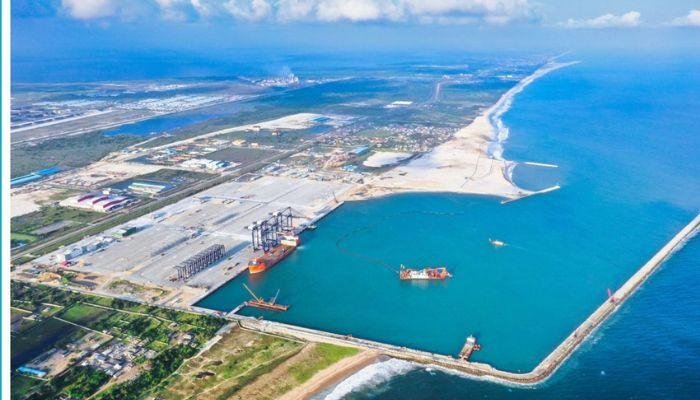The federal government of Nigeria has planned to dredge the $1.5 billion Lekki deep seaport channel from 16.5 metres to 17 metres, in maintenance efforts to attract bigger ships, strengthen transshipment, and improve trade.
The modern port, which has enjoyed an increase in cargo throughput, has helped improve cargo and vessel turnaround times, a win for Nigeria’s export competitiveness, particularly for agro-allied products under the African Continental Free Trade Agreement (AfCFTA).
Abubakar Dantsoho, managing director of the Nigerian Ports Authority (NPA), announced the project over the weekend, disclosing an eventual 19-metre target.
He said the NPA signed the deal with China Harbour Engineering Company (CHEC) to dredge the advanced deep-sea port. The government also seeks to deepen ties with CHEC and strengthen cooperation to expand Nigeria’s trade volumes through Lekki Port, and support neighbouring landlocked countries.
Read also: B’Odogwu not just a revenue driver, but a money saver – Daniyan
There are high hopes for the port, considered Nigeria’s newest and with world-class port facilities, it could also be its most advanced. It is currently the only port in Nigeria with the capacity to berth Super Post-Panamax vessels.
Dantsoho acknowledged the port’s readiness for a port community system, a digital platform that enables ports to optimise cargo handling, track shipments, and automate processes, and a key requirement for integrating into the National Single Window.
The ports authority director said the NPA also awarded the contract for a comprehensive hydrographic survey of the Lekki channel for navigational safety to meet international maritime standards.
But it’s not all rosy at Lekki Port, at least according to Wang Qiang, its managing Editor.
Qiang brought up multiple policy recommendations with the leadership of the NPA, including tariff adjustments to reflect service costs and inflation, and lower ship dues for large vessels and feeders. Qiang also requested night pilotage services to enable all-day operations and improve turnaround time for vessels.
The Ports Authority director noted that the resolution of many of his concerns requires funds. Dantsoho noted that many port efficiency tools, including navigational buoys and tug boats, are dollar-priced and must be continually procured.
He said more revenue is needed to purchase such equipment and ensure competitive salaries for operating personnel, which the National Single Window (NSW) will help procure when fully deployed, as 95 percent of processes are completed paperless, and port revenues are expected to triple.
“Once electronic transactions take full effect, we expect a significant revenue boost, and at that point, NPA can revisit the issue of ship dues reduction.” he said.

